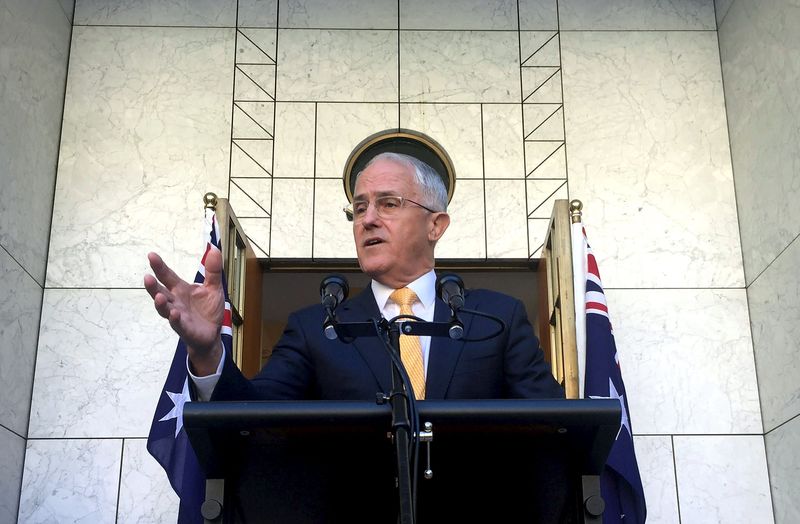(Repeats story published on Sunday; no changes to text)
By Matt Siegel
ADELAIDE, Australia, July 3 (Reuters) - As Australians cast their ballots in a tight election on Saturday afternoon, senator Nick Xenophon worked up a sweat while preparing kebabs at a Greek restaurant in his hometown.
"Nick, if you no get across the line tonight, I give you a job," owner Yianni Tsagariolis shouted in a thick Greek accent, drawing laughter from Xenophon supporters who had gathered at the restaurant.
But with early results showing the Nick Xenophon Team (NXT) party winning between three and five Senate seats, it became clear the restaurant's charcoal grill was the only reason for Australia's next political kingmaker to break into a sweat.
Australians went to sleep without knowing who will be prime minister, but the eventual election winner -- whether the ruling conservative Liberal-National coalition or the opposition Labor Party -- will likely need to negotiate with NXT senators to pass key legislation. almost 10 million votes counted on Saturday, the parties were in a near dead-lock. It is expected to take several days to determine a winner.
Far-right politician Pauline Hanson also looks set to win a position in the upper house.
NXT candidate Rebekha Sharkie, who won the party's only lower house seat, may even have a say over who becomes prime minister should the election lead to a hung parliament.
Xenophon, a former suburban lawyer who has served in the Senate since 2008, built his position by exploiting widespread political fury sparked by former Prime Minister Tony Abbott's 2014 decision to buy a A$50 billion ($37.48 billion) fleet of 12 submarines from Japan. decision shattered a promise Abbott had made to build the vessels in Adelaide, the capital of South Australia, and Xenophon relentlessly pushed the government to open up the process and hold a tender.
Speaking on election night, Xenophon said his party would be a voice for millions of centrist Australians who felt left out by the two major parties.
"We've broken the duopoly," he said to cheers from supporters at a campaign event in Adelaide.
"There's only been one of me in 226 seats; there'll be at least four of us and that'll be huge. That will be a base for us to build on ... that's why the majors are running scared."
In the previous election cycle mining magnate Clive Palmer briefly played a similar role before infighting led to an implosion in the Palmer United Party. Two of its senators resigned from the party.
Xenophon's party also lacks a unifying ideal beyond his personal brand, said Peter Chen, politics and media lecturer at the University of Sydney.
"Xenophon himself is obviously an experienced and disciplined campaigner and parliamentarian but he has to be able to keep his troops in order and he's never been called on to do that before," Chen said.
But a political source close to Xenophon, who asked to remain anonymous because he was not authorised to speak with the media, dismissed such concerns.
"It's a good result from a team-management perspective," the source told Reuters. "In some sense if we'd won everything we could have done, it would have been a management nightmare. All of them understand the importance of unity." ($1 = 1.3342 Australian dollars)
